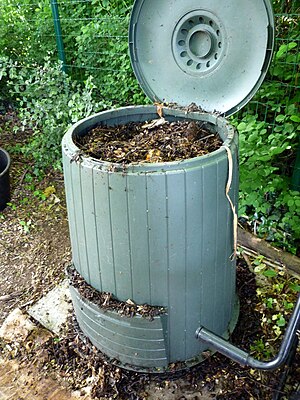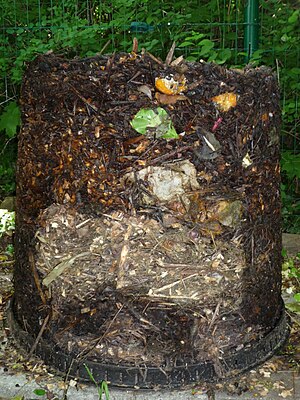Ashes from charcoal should not be added to your compost, although you can add very small amounts of ashes from a fire that was made with untreated wood. It is not a good idea to add a lot though because it can change the composition and make it too alkaline.
 |
| Don't add cat litter to your compost! (Photo credit: Wikipedia) |
Any type of animal waste such as leftover meat, oil, bones, or fish waste are off-limits. They all can cause your pile to smell badly and can attract unwanted pests.
Milk, yogurt, cheese, or any other milk product should be added with caution. They all will attract animals and pests. If you do decide to add them, do so in small amounts and cover them with plenty of brown materials afterwards.
You can add weeds, but you should take care to ensure your composting is functioning properly. If your compost is not generating enough heat the roots may not be destroyed and the weeds may grow again once you spread your compost. You can dry your weeds on a sidewalk or on some concrete in the sun before adding to the pile as an added precaution to make sure they do not survive.
These are just a few items you should not compost - or should use caution when composting. Following these tips will minimize composting problems, and help make sure your composting efforts are a success!


